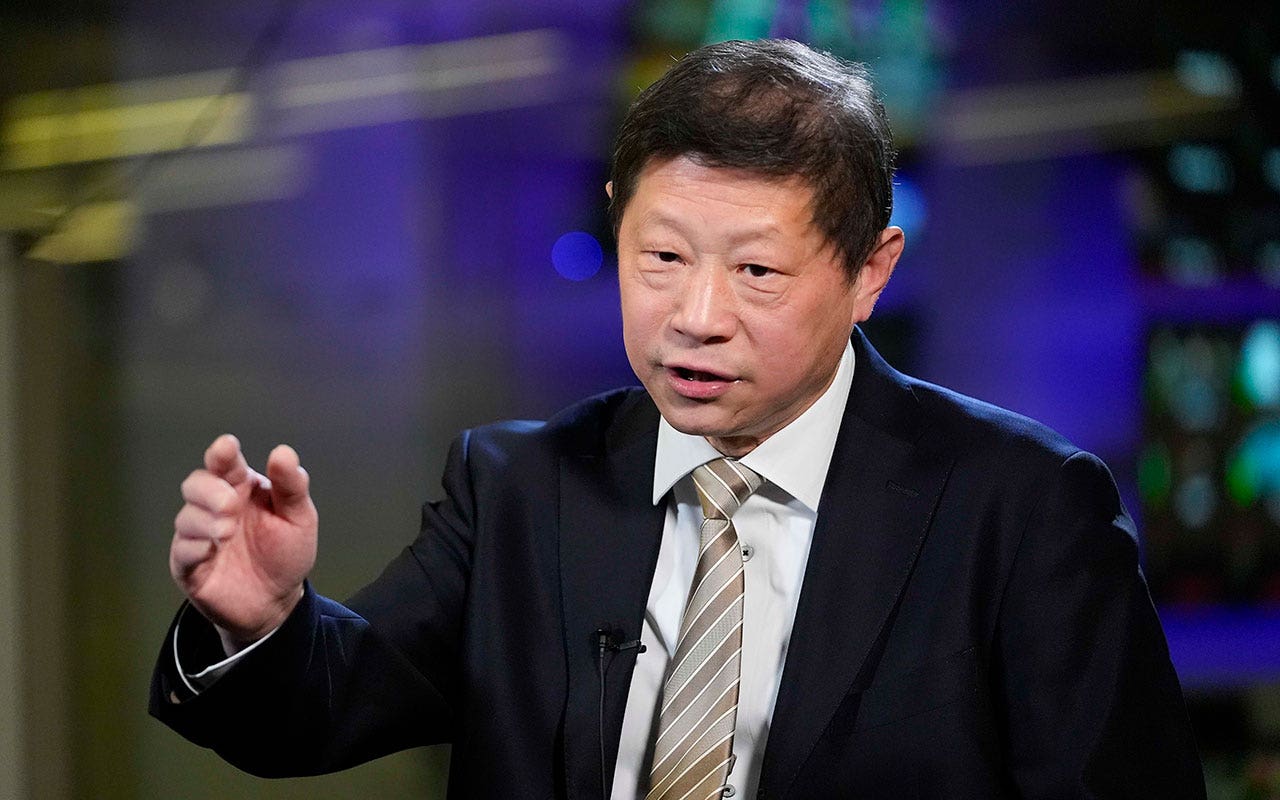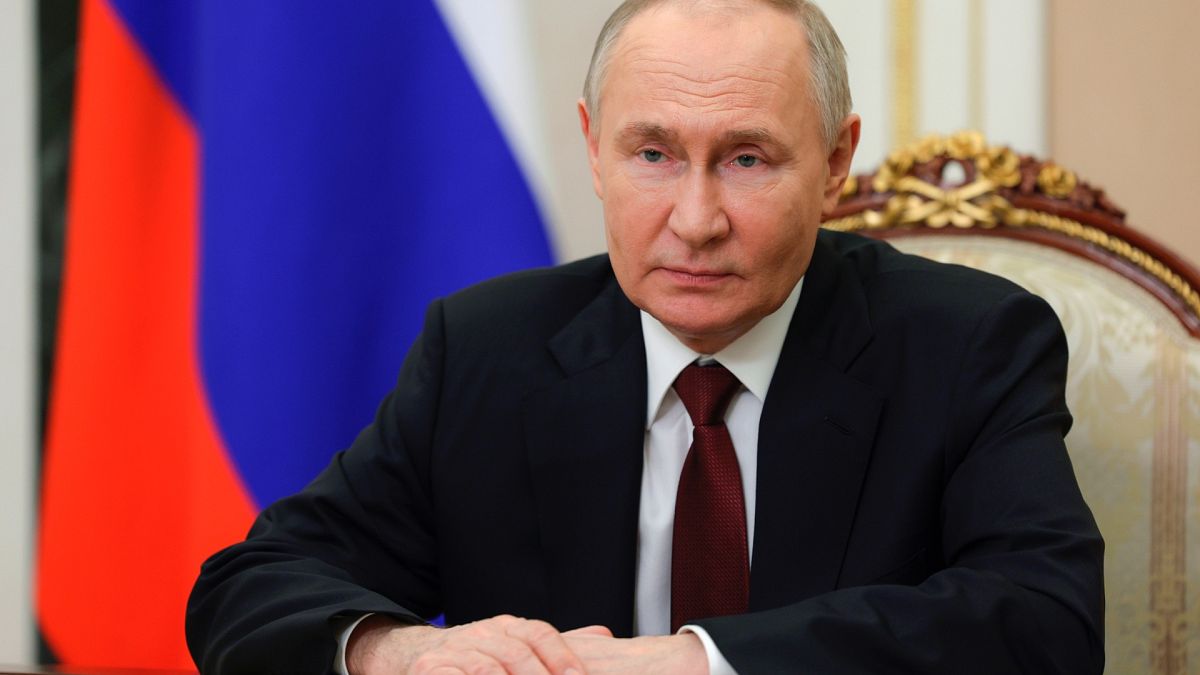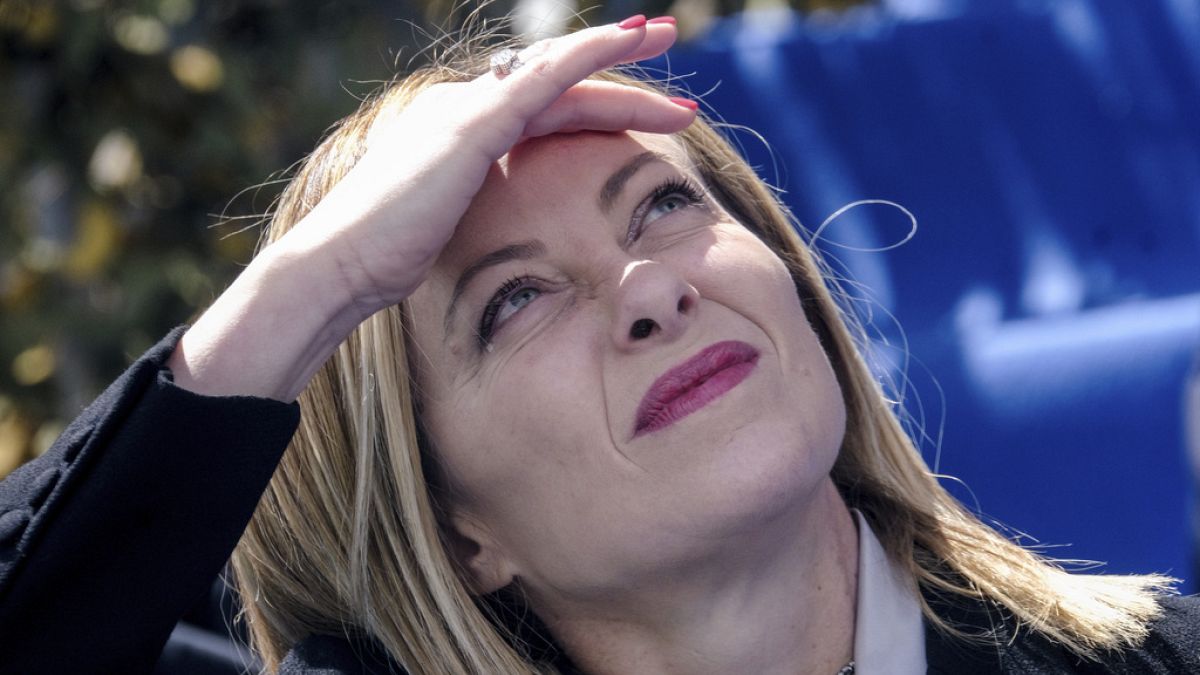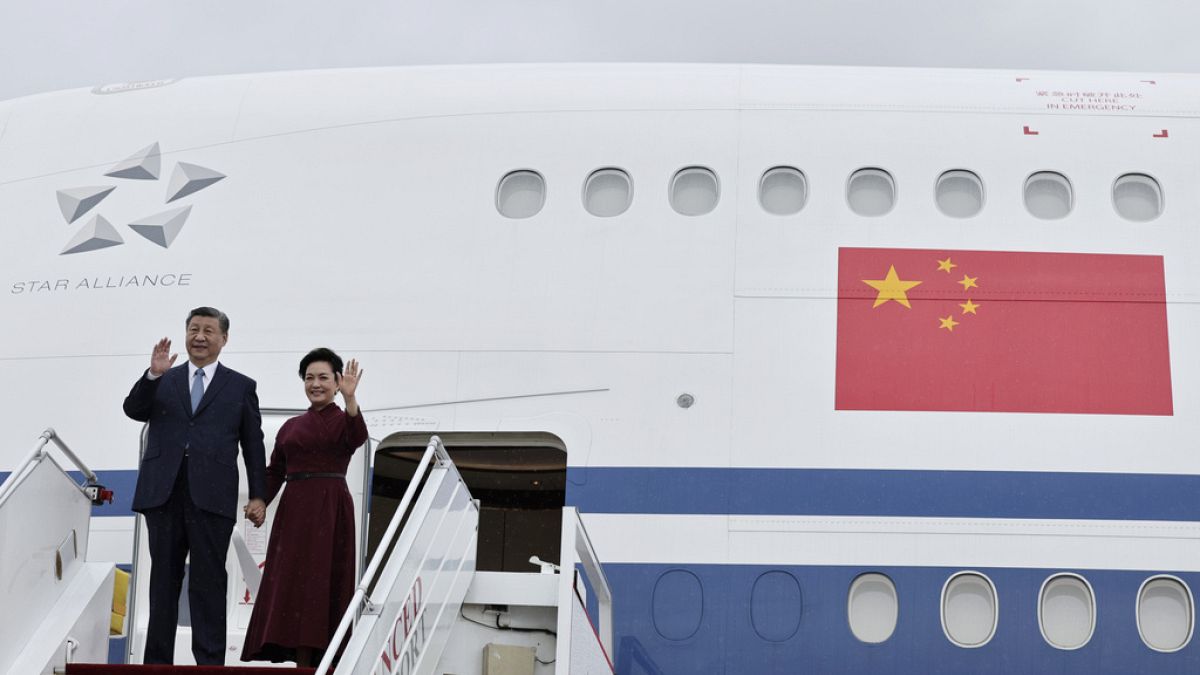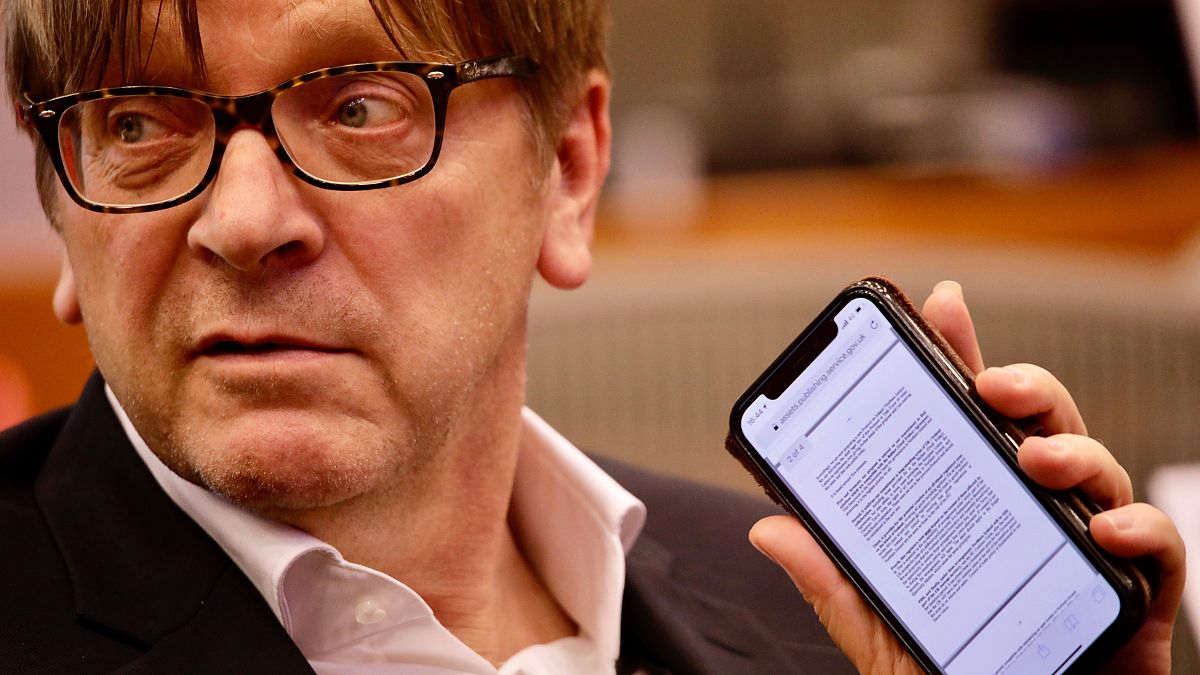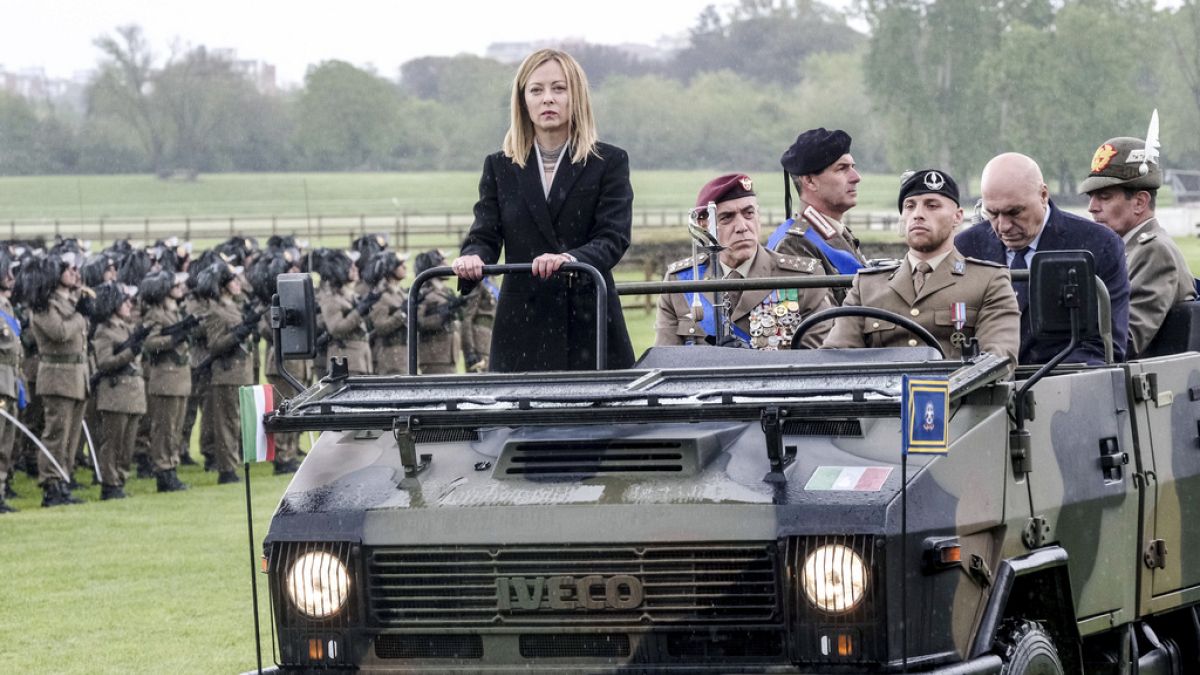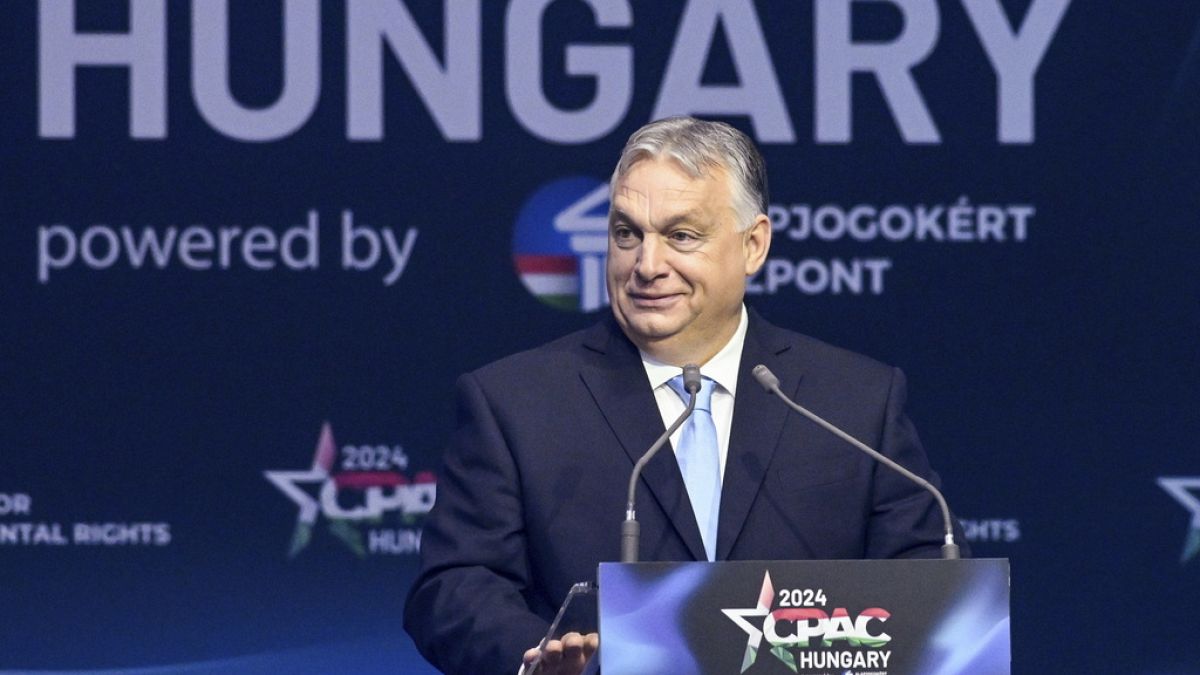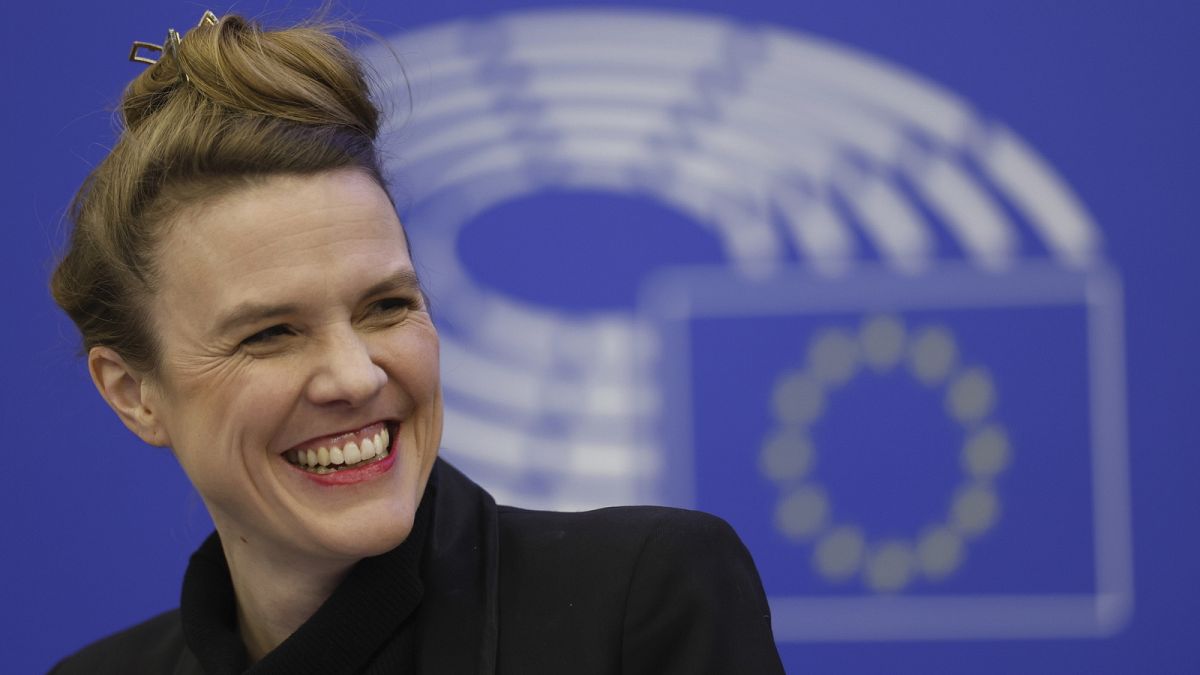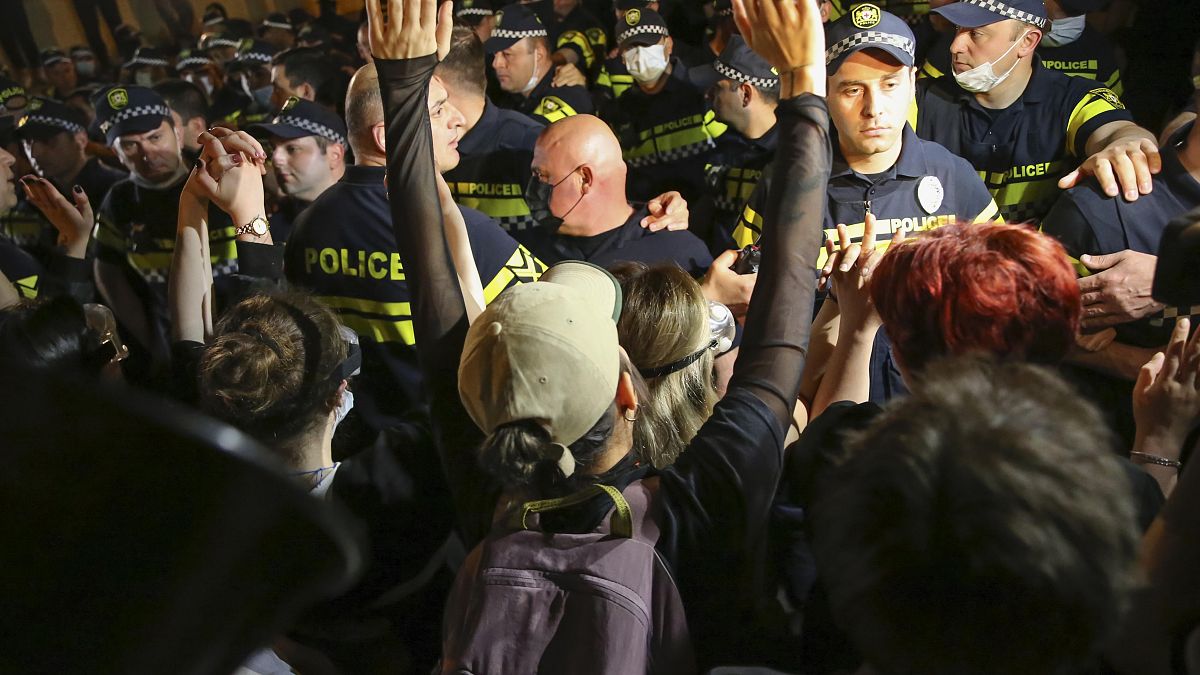A string of EU court judgements overruling asset freezes on Russian businessmen doesn’t upend the overall strategy.
EU sanctions on Russian oligarchs, designed to put pressure on Vladmir Putin, are facing a host of legal woes – but don’t represent a strategic setback, Euronews has been told.
European courts have repeatedly struck down travel bans and asset freezes imposed on those deemed to be in Putin’s inner circle – most recently for bankers Mikhail Fridman and Petr Aven.
But that may be par for the course, as the bloc struggles to impose record-breaking measures as economic retaliation for the Ukraine war, experts have said.
The EU Council, which groups member states, says it has imposed Ukraine-linked restrictions on some 1,706 people and 419 entities – dwarfing the bloc’s other sanctions regimes.
Those targeted include President Putin, his officials, and media outlets which the EU says are spouting Kremlin disinformation – but also a range of wealthy businessmen said to be supporting the war.
Two weeks ago, the EU’s General Court quashed one high-profile EU decision, saying there wasn’t enough proof that former Alfa Bank tycoons Aven and Fridman had aided Russian decision-makers or undermined Ukraine.
But those rulings don’t undermine the sanctions regime as a whole, European Commission foreign policy spokesperson Peter Stano told Euronews.
“The judgments by EU Courts concern legal requirements in relation to specific designations, and not the EU sanctions policy generally”, Stano said in an emailed statement.
The EU has won a number of its high-profile cases, including against former Chelsea FC owner Roman Abramovich, and chemicals magnate Dmitry Mazepin. (His son, Formula 1 driver Nikita Mazepin, did win his case, as judges said mere family connections weren’t sufficient grounds for a financial freeze.)
But even when unfavourable to Brussels, the legal decisions aren’t the end of the story.
The ruling can still be appealed to the senior Court of Justice – though Stano said EU members were still analysing whether to do so in the case of Fridman and Aven.
Sanctions are time-limited and frequently renewed: judges often remove one sanctions decision only for it to be replaced by a further, hopefully more robust, listing.
As a result, restrictive measures against Aven and Fridman remain in place despite the April judgement, Stano said – since designations were renewed in March.
Sanctions are an extreme measure which need a high burden of proof – and successful court challenges are to be expected, one expert has told Euronews.
“You cannot simply list people on the basis of being influential businessmen,” Clara Portela, Professor of Political Science at the University of Valencia, said in an interview. “You need to demonstrate that they supported the war effort or are close associates of Putin.”
That has proved difficult amid the extraordinary rush to impose sanctions in the wake of the 2022 invasion, and because evidence from secret intelligence can’t be shared with judges.
“In the specific case of Russia, many people were listed very quickly,” Portela said. “Producing an evidence package for hundreds of people is not something the EU has the capacity to do.”
In other cases, such as that of former Ukrainian President Viktor Yanukovych, the Council relied on novel tools designed to stop the embezzlement of state funds.
Though the court struck down sanction measures last December, the political scientist said there’s still “plenty of criteria” to relist Yanukovych, who was ousted after seeking closer ties with Putin and now lives in Russia, using more conventional means.
Recent court judgements are “not necessarily an important setback”, Portela added – and nothing new, even if there’s more attention on them now.
Why does the EU impose sanctions on oligarchs?
Sanctions on the wealthy are intended to exert indirect pressure on autocrats by persuading elites they’d be better off with someone else in charge.
The approach was already seen in the Arab Spring, and to a certain extent in the attempted – and failed – mutiny against Putin by Wagner Group’s Yevgeny Prigozhin, Portela said.
But EU sanctions also force oligarchs to choose between the west and Russia – in which case they either lose influence over Putin, or become even more fully dependent on and loyal to him, she added.
Plus the Kremlin also may have its own means of influence – less bureaucratic but more effective than the EU’s.
In March 2022, the board of the privately owned Lukoil called for an end to the Ukraine conflict.
Vitaly Robertus, found hanged in his office last month, is reportedly the fourth of the oil company’s executives to die since then; its former chairman Ravil Maganov fell from a hospital window.
Multiple challenges
EU sanctions face challenges beyond the merely judicial. Oligarchs can set up complex financial structures to evade them, and some blame loopholes in EU dirty-money rules.
“The biggest deficit here is the inability to act against Russia,” MEP Damien Carême (France/Greens) said on Wednesday (24 April), just before a landslide vote to reform the bloc’s anti-money laundering regime.
“How can we claim to be supporting Ukraine when Russian oligarchs close to Putin have luxury villas on the Cote d’Azur, or megayachts in our harbours?”, Carême asked.
Would-be sanctions-busters may be helped by the lumbering EU decision-making process, which any single member state can veto, offering oligarchs time to find a workaround.
Yet sanctions on elites are just part of a package of measures which, Stano notes, also freeze 70% of the assets of Russia’s banking system, as well as key sectors like oil and semiconductors.
Those wider sanctions didn’t immediately bring Russia down or stop the war, but there’s evidence they’re having an economic effect.
Western measures have led Moscow to impose capital controls, and forced the NWF, Russia’s sovereign wealth fund, to drain around half its liquid assets to plug deficits, a March report by the Kyiv School of Economics said.

